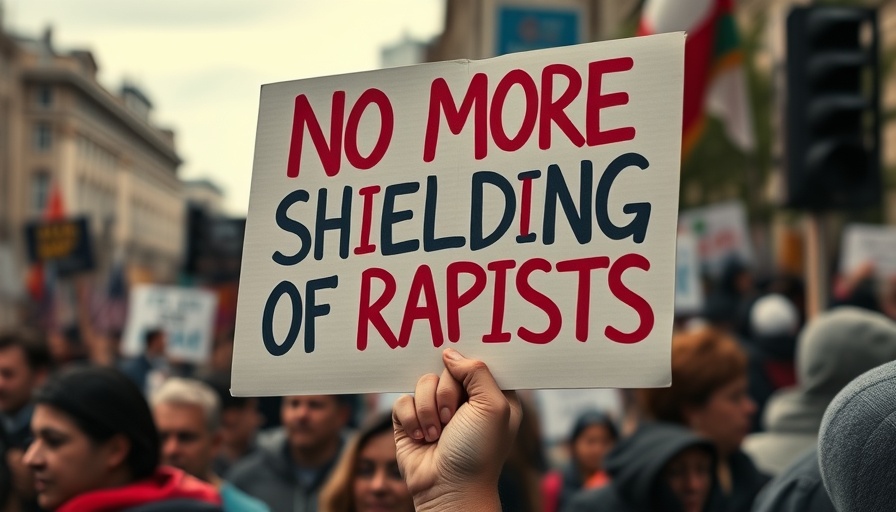
A Youthful Outcry: Soweto Students Demand Justice
The recent alleged rape of a seven-year-old girl in Matatiele, Eastern Cape, has ignited a strong response from the youth in Soweto, showcasing their discontent with the inefficiencies of the Criminal Justice System. Leading the charge, the Economic Freedom Fighters (EFF) Youth Command orchestrated a demonstration that mirrored increasing frustration regarding gender-based violence and lack of accountability in such cases.
Unpacking the Protest: Voices of Change
The protest, which drew attention at Vilakazi Street and culminated at Orlando Magistrate’s Court, saw students unite under a common cause. March organizer Lebogang Mothibe emphasized the need for a mechanism to review cases handled by prosecutors—particularly focusing on Gender-Based Violence (GBV) cases. “We need a system to evaluate the competence of the prosecutors,” Mothibe stated passionately. This sentiment reflects a significant demand for systematic change where victims receive the justice they deserve.
The Broader Context of Gender-Based Violence in South Africa
South Africa's ongoing struggle with gender-based violence is nothing new, yet the youth's reaction underscores a critical moment in the nation's political discourse. Reports indicate that according to the latest crime statistics, gender-based violence continues to plague communities, making it vital for effective measures to be implemented within the legal framework. By mobilizing, this generation is not merely reacting; they’re demanding a transformation in how their government prioritizes these vital issues.
Political Underpinnings and Youth Activism
This protest raises questions about how South African politics handles GBV. The EFF, known for its radical approach, stands in stark contrast to traditional political parties like the ANC and the Democratic Alliance. The differing methods of engagement and policy advocacy lead to common goals but highlight varied perspectives on the path to justice. Youth activism represents a shift in political awareness and assertiveness, demanding that structural changes and justice mechanisms become a reality.
Future Predictions: The Potential for Legislative Change
As various political factions debate the best path forward to address GBV, analysts predict an increased push for legislative reforms that more rigorously tackle this epidemic. Possible changes could involve establishing specialized units within police forces, enhanced training for prosecutors, and community-based support systems. This could foster a more responsive public sector and contribute significantly to preventing future incidents.
The Emotional Element: Community Response and Empathy
For many community members, the emotional weight of such a crime resonates deeply. Stories of victims amplify the ongoing fight against GBV, yet the response from the youth brings forward the idea of collective responsibility. The children’s futures depend on creating safer communities, wherein every member feels heard and valued. They are responding to the broader societal question: how can we cultivate an environment that protects the most vulnerable among us?
Confronting Misconceptions about GBV Initiatives
While many advocate for more attention on gender-based violence, there are prevailing misconceptions surrounding the efficacy of current initiatives. Critics often argue that programs lack the necessary funding or public awareness needed to effect meaningful change. However, the growing visibility brought on by student protests and advocacy indicates that awareness is rising. The current climate suggests a paradigm shift where the public demands that policies be translated into actionable change.
Join the Fight: How You Can Contribute
In light of these developments, professionals and concerned citizens must engage actively with the issues at stake. Whether through advocacy, education, or community outreach, each voice magnifies the call for justice. Addressing the pressing demands for accountability within the criminal justice system is as crucial as fostering empathetic communities that stand against violence.
Conclusion: A Call for Action
The outpouring of sentiment from Soweto's youth is a powerful reminder of the potential for societal change, hinging on collective action. As the nation aims for healing and accountability, it is essential that not only the voices of the youth, but all citizens unite to call for justice and reform. The time for tangible change is now—add your voice to this important conversation and help shape a future where safety and justice prevail for all.
 Add Row
Add Row  Add
Add 




Write A Comment